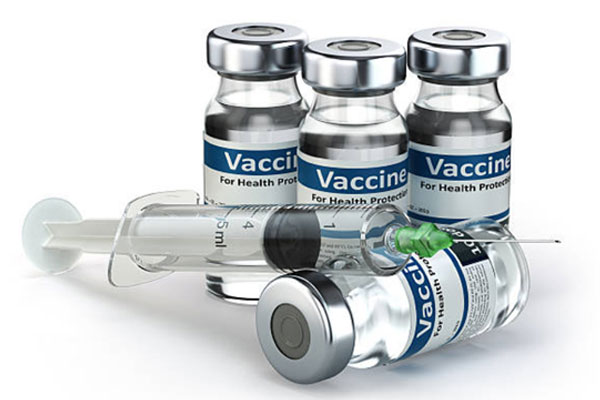UK starts administering Moderna vaccine against COVID-19
Patients in Carmarthenshire in Wales are the first cohort to begin receiving the new vaccine
The UK began the rollout of the Moderna vaccine to protect against COVID-19, the third two-dose vaccine now being administered by the National Health Service (NHS) alongside the Pfizer/BioNTech and Oxford/AstraZeneca jabs.
Patients in Carmarthenshire in Wales are the first cohort to begin receiving the new vaccine, which has been developed by the American biotech firm Moderna and was approved for use in the UK in January this year.
The UK government said it has ordered 17 million doses of the vaccine, with the first doses being received this week and administered at Carmarthen’s Glangwili Hospital in west Wales from Wednesday.
“I’m delighted we can start the UK rollout of the Moderna vaccine in west Wales today. The UK government has secured vaccines on behalf of the entire nation and the vaccination programme has shown our country working together at its best,” said UK Health Secretary Matt Hancock.
“Three out of every five people across the whole United Kingdom have received at least one dose, and today we start with the third approved vaccine. Wherever you live, when you get the call, get the jab,” he said.
The Moderna vaccine is a two-dose jab given at an interval of between four and 12 weeks. Like the Pfizer jab, it is an RNA vaccine and works by injecting part of the virus’ genetic code into the body, where it enters cells and tells them to create antigens.
The latest addition, described by Welsh Health Minister Vaughan Gething as “significantly” adding to the United Kingdom’s defences against COVID-19, comes as Oxford University paused a trial of its COVID-19 vaccines being produced by AstraZeneca in children amid regulatory investigations into rare blood clots.
An Oxford University spokesperson stressed that there were “no safety concerns” with the specific study, but that further information was being awaited from the UK’s Medicines and Healthcare products Regulatory Agency (MHRA), which is analysing if there are any causal links between the jabs and a very small number of cases of blood clots.
“No decisions have been made on whether children should be offered vaccinations,” a Department of Health and Social Care spokesperson said.
“We will be guided by the advice of our experts on these issues including the independent MHRA and Joint Committee on Vaccines and Immunisation,” the spokesperson said.
The MHRA is investigating reports of a very rare and specific type of blood clot in the brain, known as cerebral venous sinus thrombosis (CVST), occurring together with low levels of platelets (thrombocytopenia) following vaccination.
It recently said that it identified 30 cases of rare blood clot events out of 18.1 million doses of the jabs administered up to and including March 24. There have been seven deaths among those 30 cases.
“Our thorough and detailed review is ongoing into reports of very rare and specific types of blood clots with low platelets following the COVID-19 vaccine AstraZeneca. No decision has yet been made on any regulatory action,” said MHRA chief executive Dr June Raine.
“People should continue to get their vaccine when invited to do so,” she said.
The regulator maintains that the benefits of the vaccine continue to outweigh any rare concerns that are under investigation for causal links.
The World Health Organisation (WHO) has also said that the benefits of the vaccine outweigh any risks.
(Edits by EP News Bureau)


